14 Ingredients for Organic Fertilizer & Exactly What They Are Good For

Want to get the most out of your garden? Learn what these everyday ingredients do for your plants...
Quick Navigation
ONE OF THE FIRST things I learned when starting down the garden path was that the best thing you can do for your garden is to use an organic fertilizer. Sure, there are a number of ready to use chemical fertilizers available, but who really wants to eat veggies filled with who knows what chemicals.
If you want foods that are packed with nutrients, your soil needs to be very healthy and the best way to do this is not chemically (sorry to all the chemical companies), but with a healthy dose of good old-fashioned organic fertilizers.
The Big Concern
The most important thing you can do for your soil and everything you plan to grow in it is to ensure the soil is as well-balanced as possible. It should be easy, right? After all, it's just dirt, all you need is a bit of fertilizer each year and all should be well.
Not so fast. You can just as easily end up with soil that is overloaded with nutrients as you can soil that is undernourished. The best way to ensure the soil in your garden is perfect for the veggies you plan to grow is to start out with a soil test.

You don't need the coat and gloves, but doing a soil test is the best way to determine what to put into your fertilizer
Having your soil tested gives you a good starting reference point. In other words, you need to know where your soil is at before you start trying to amend it with the right organic fertilizer.
The real problem or so I found out is that finding a good quality organic fertilizer ready to use on the store shelves is virtually impossible. The reason for this is that most of these are chock full of nasty chemicals that your garden does not need and neither do you as so many of them end up in the veggies you plan to harvest.
14 Organic Fertilizer Ingredients
Chemistry is a wonderful subject to study in school, but as with many things, it has only a limited place in your garden.
The best possible way to make your soil healthy is to use good quality organic fertilizers. There are many different items that can be used as an organic fertilizer, some of which are better for veggies, some for fruits, and most that can be used for both. Here are
14 of the most commonly used forms of organic fertilizer.
1. Food Scraps

Image courtesy of David Suzuki Foundation
As simple as it sounds, you do have to be careful about what food scraps you use to create organic fertilizer. For example, you should never use any type of meat scraps, oils, greases, or dairy products in your compost.
You can use virtually any type of vegetable and fruit waste. You can use these scraps as part of your compost pile or by simply spreading them on the ground around the base of the plants or by digging them in closer to the roots.
2. Horse Manure

Image courtesy of Pets4Homes
You should never put fresh horse manure in your garden, it must be properly aged first. Fresh manure can actually burn the roots of your plants.
Horse manure, however, is rich in nitrogen and contains plenty of organic matter. However, given the diet of most horses (eating grass etc. in the pasture) their manure is likely to contain a fair amount of weed seeds.
You can eliminate the seeds by composting the manure before you use it.
3. Chicken Manure
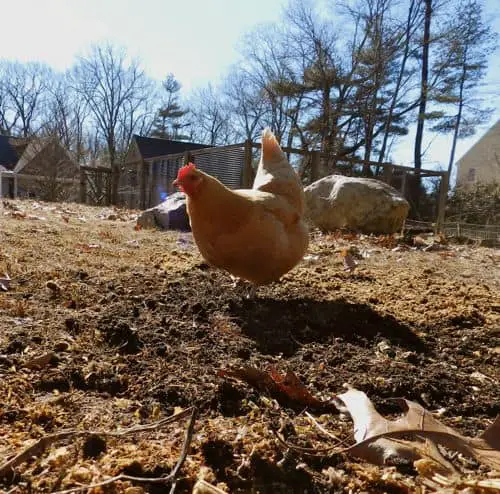
Image courtesy of HenCam
Chicken manure is considered to be an excellent organic fertilizer. It is extremely high in nitrogen and contains phosphorus and potassium. It is this unique blend of nitrogen and other nutrients that makes chicken manure much sought after by expert gardeners.
Due to the high risk of contamination by human parasites and pathogens such as salmonella, you should only use properly aged or high-heat composted manure. Proper aging time is one year as this is long enough for any of these organisms to have died off.
4. Coffee Grounds

Image courtesy of Farmers' Almanac
Coffee grounds are an amazing source of nitrogen. Here again, you can spread the grounds around the base of your plants and mix them into the soil or add them to your compost.
You should never throw away coffee grounds and it doesn't matter whether you drink regular or decaf as their grounds will both do the job.
5. Crushed Egg Shells
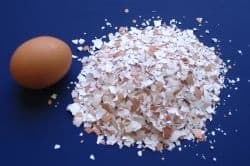
Image courtesy of Jolly Egg Farm!
Your body needs plenty or protein and so do many of your plants if you want them to grow up big and strong. Egg shells that have been crushed up into tiny pieces are an excellent source of protein for just about any type of plant.
If you spread them around the base of your plants, not only will they provide much-needed protein, but they are an excellent pest repellent as creatures such as snails and slugs have a hard time climbing over the shells (even the tiny pieces) so they can reach the stalks of your plants.
6. Tea Leaves

Whether you are talking about fresh tea leaves or the ones left over after you make tea (loose leaf or tea bags), they both contain a range of nutrients as well as tannic acid. As the leaves decompose, they help to improve the nutrient level in your soil, and in doing so improve its overall health.
The tannic acid, however, may cause the pH in your garden to become more acidic. This can be a problem around any plants that prefer a neutral to alkaline environment to grow in.
7. Banana Peels

Image courtesy of Reader's Digest
We all eat bananas because they are packed with potassium. So, guess what? Your plants, especially the veggies and flowers, need lots of potassium too!
The potassium will help your plants bloom and flourish. At the same time, much like egg shells, banana peels make great pest repellents as aphids absolutely hate them.
Cut the peels into small pieces and bury then 2 to 3 inches in the ground around the plants. You can also rub the insides of the leaves with the inside of the peels as this also works as a natural pesticide.
8. Orange Peels

Okay, so this one is more about pest control as orange peels chopped up and scattered around your garden will keep the cats out. But, as with any other form of organic matter, the peels will decompose and add nutrients to your soil.
9. Lawn Clippings

Images courtesy of Natural Living Ideas
Lawn clippings should be another major ingredient in your compost bin, but at the same time, they can be added directly to your garden.
Adding a layer of fresh grass clippings to your garden does two things, first and foremost the decomposing grass will add a number or vital nutrients to your garden. Secondly, a good layer of grass will help keep moisture in and slow down the growth of weeds.
Grass, like most plants, is very high in nitrogen.
10. Weeds and Other Prune Clippings

Image courtesy of Cosmos and Cleome
You have to give Mother Nature serious kudos for this, your garden grows its own fertilizer! Weeds tend to be quite high in the nitrogen your veggies need so badly.
You can dry them out and chop them up to use as a mulch, put them in your composter, and some make a "brew" from them. This is done by placing a bunch of leaves from your weeds in a 5-gallon bucket, weighing them down with a brick, and then filling the bucket with water.
You then wait for a few weeks until the liquid becomes a thick goo. This can then be mixed with water at a ratio of 1 part goo to 10 parts water and applied to the soil around your plants.
11. Cardboard, Newspaper, and Paper
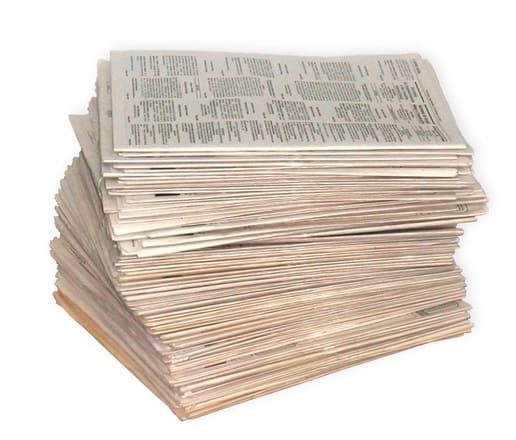
These items are great to use as layers in your composter. Adding the paper helps to speed up the composting process and like wood ash, in that, it is high in potassium and calcium carbonate, both of which are vital to your soil's overall health.
These materials also help to absorb and retain water far better than dry soil.
12. Gypsum or Epsom Salts

Image courtesy of Amazon
Epsom salts and gypsum are great sources of magnesium and sulfur. Your plants need magnesium in several ways. First it helps the seeds to germinate properly, secondly, it helps with the photosynthesis process.
The sulfur helps with root growth, the production of amino acids, and the formation of chlorophyll.
Here is a more detailed explanation of how Epsom salts can help your garden - 10 Proved Uses for Epsom Salt in the Garden.
13. Seaweed
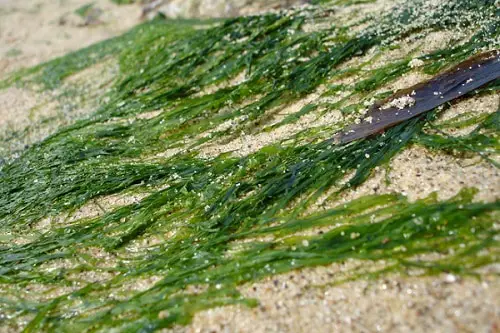
First, let's deal with one important myth about fresh seaweed, you DO NOT have to wash it to get rid of the salt before you can use it.
Now on to how to use this amazing source of trace minerals the microorganisms in your garden are so fond of. Chop up the seaweed (fresh or dried) and add to a 5-gallon bucket of water (you need a small bucket of seaweed) and let it brew for about 2 to 3 weeks. Keep the bucket loosely covered.
Once the mix has brewed it can be applied directly to the soil at the base of their stalks.
14. Worm Castings
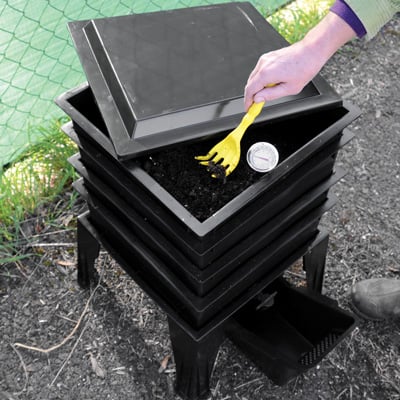
Image courtesy of Worm Factory
You can buy a worm farm for around a hundred bucks and grow your own fertilizer. The worms live on a diet of soil and compost.
Not only do the worm castings make an excellent fertilizer, but you can feed them on nothing but kitchen scraps and a little cardboard or newspaper. The castings also help your soil to retain more water and have been proven to help reduce the risk of root rot.
4 Things You Should NOT Put in Your Organic Fertilizer
1. Meat

Meat, including fish scraps, should never be added to your compost or directly to your garden. While these products may have a number of nutrients your garden could surely use, they also contain a number of parasites, artificial hormones, and pathogens your garden does not need.
The other side of this is that your garden will eventually smell of rotting meat. No one needs or wants to live with that!
2. Dog and Cat Manure
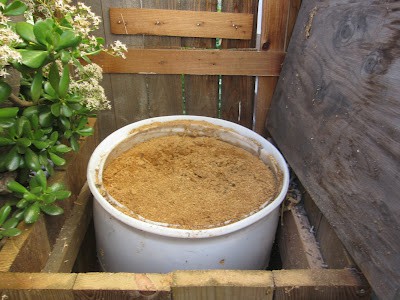
Image courtesy Root Simple
There are many animals whose poop makes great manure, horses, cows, chickens, ever rabbits, but both of these creatures are carnivorous by nature. As such their poop is likely to contain a high percentage of meat along with the prerequisite amounts of pathogens, parasites, and microorganisms your garden does not need.
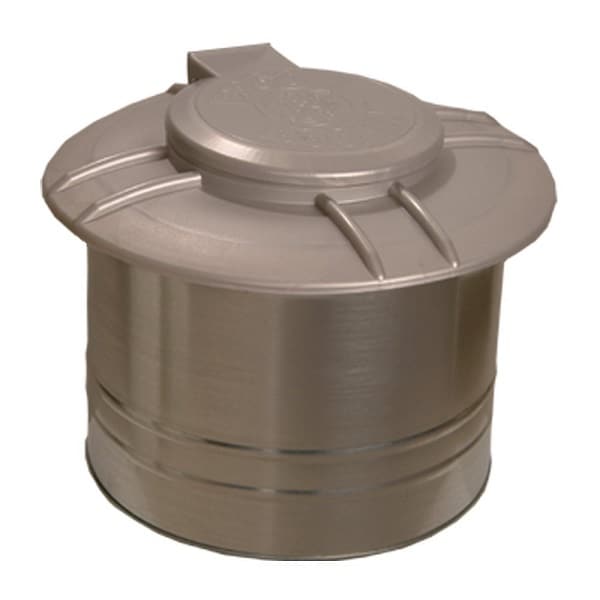
Image courtesy of Amazon
IF you really need to, you can use a special pet waste composter that will let the waste break down and everything you don't want to die off. This is not something most garden experts recommend, however.
3. Treated Wood/Sawdust
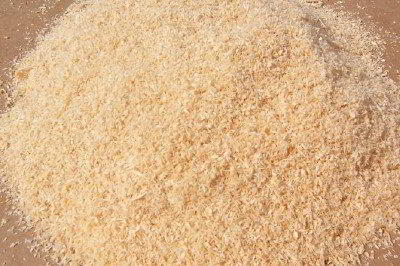
Image courtesy of tradeKorea
As much as you can use untreated wood, paper, and even cardboard as an organic fertilizer, you should never use treated wood or sawdust made from this type of wood. This includes pressure treated wood and any wood that has been covered with paint, stain, or varnish. All of these can contain toxic compounds. Treated wood has arsenic in it and should be avoided.
4. Any Form of Synthetic Fertilizer
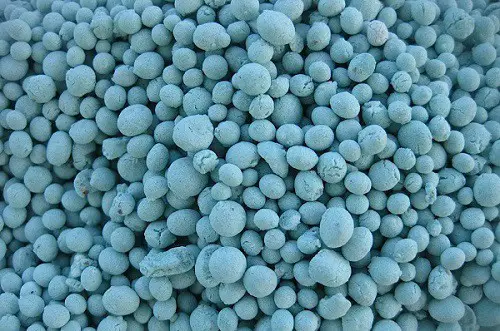
Image courtesy of Van Luyk Greenhouses Garden Center
While it might seem pretty obvious, there are several reasons why you should not include any type of synthetic fertilizer such as that highly popular and very "miraculous" blue crystal stuff to your organic fertilizer.
To start with, they are chock full of inorganic compounds and heavy metals. These ingredients will eventually reach a point at which they are very harmful to your garden and may kill off the many valuable microorganisms in it. They can also significantly affect the balance of your soil's pH and naturally occurring nutrients.
How to Use Organic Fertilizer
Unlike chemical fertilizers, organic fertilizers tend to break down quite slowly so you should apply them several months prior to planting the soil. The only exception to this are liquid fertilizers such as weed or grass tea and fish emulsions.
These can be applied directly to the soil around the plants. Here is an in-depth article on using organic fertilizers put out by the National Gardening Association.
One thing to keep in mind above all else is that you need to use the right types of fertilizers to keep the pH and nutrient levels in your soil properly balanced if you want your veggies and fruits to keep your family fed.
Good to the Last Drop
I have found through trial and error (yes I had a couple of really crappy seasons) that the only way to grow a fantastic garden is through the use or organic fertilizers. Honestly, I feel that doing so helps me stay more in touch with my garden all year long, even during the off season as I work on my compost for the next one.
The information on this list is the result of several and yes I mean several years of hard work and plenty of good old-fashioned research.
- If you have enjoyed reading about organic fertilizers, please let me know.
- If you have any information you would like to see here, please contact us here.
- Let everyone know you enjoyed reading this on Facebook, Twitter, and Pinterest.
- Thank you for reading this.
Related Articles:
